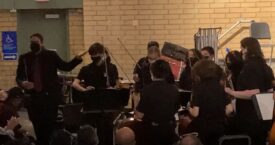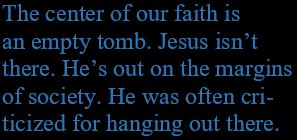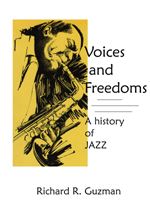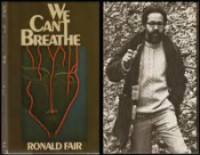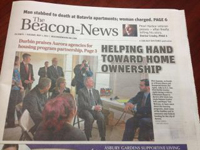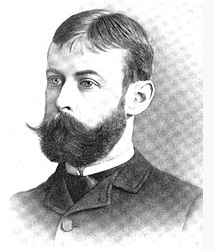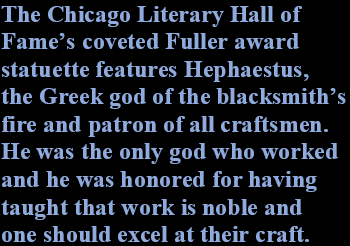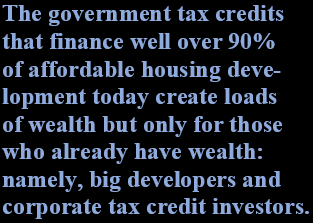I had lots of trouble preparing the sermon below. I struggled perhaps because I was trying to do so many things, chief among them being to speak about the scriptures of the day and emphasizing transitions during a landmark time in my life. I was preaching on my birthday, my 75th birthday. In spots, my delivery is softer and slower than it’s ever been.
 The year leading up to 75 was a tough one for me. I remember being as frustrated as I’ve ever been at times, and I often felt like I couldn’t keep up. On the other hand, the year had also been incredibly busy. We took 10 major trips, worked a lot on race issues, and ended the year doing a kitchen remodel, where I carried in and out of the house 1000 pounds of tile, and laid a tile floor, all the while hearing my brother’s voice saying, “You’re almost 75! You have no business laying a tile floor!” My wife was there helping all the way, but still I guess there was some excuse for feeling tired out, even old, something I’d rarely thought about before.
The year leading up to 75 was a tough one for me. I remember being as frustrated as I’ve ever been at times, and I often felt like I couldn’t keep up. On the other hand, the year had also been incredibly busy. We took 10 major trips, worked a lot on race issues, and ended the year doing a kitchen remodel, where I carried in and out of the house 1000 pounds of tile, and laid a tile floor, all the while hearing my brother’s voice saying, “You’re almost 75! You have no business laying a tile floor!” My wife was there helping all the way, but still I guess there was some excuse for feeling tired out, even old, something I’d rarely thought about before.
Three of the four main lectionary readings for this particular Sunday had to do with momentous transitions. And I speak about each one, moving backwards through the Bible from the Epistle reading, to the Gospel reading, to the Pslam, and finally to the great 3rd chapter of I Samuel. The Psalm (139: 1-6) gives us comfort. In this case, it’s comfort even in the midst of great transitions, because God knows all your thoughts and hems you in, protecting you, from behind and out in front. Speaking about transitions also made it hard to prepare and deliver this sermon. I don’t plan to transition out entirely—though you never know, of course. I plan to be as much help as I can for as long as I can, but at 75 you have to be thinking about succession plans. Afterwards, a friend who had watched online texted me, saying, “We often talk about succession but don’t take action. We need to work on that soon because our congregation consists mostly of senior citizens.” That’s a problem hardly unique to our church, though. (My friend added, “You were awesome.”)
 I Samuel, chapter 3, begins stunningly, telling us that in those days the Word of the Lord was rare and there were no visions. Time for a transition. Eli is the second to last Judge of Israel, and chapter 3 tells of the transition between him and his young charge Samuel, who becomes Israel’s last Judge and first prophet, the one who anoints Israel’s first two kings, Saul and David. In chapter 3, God calls Samuel three times during the night, and Samuel, thinking it’s Eli that’s calling goes to him the first two times. Eli realizes that its God calling Samuel. If he calls again, Eli tells Samuel, simply say, “Speak, Lord, for your servant is listening.
I Samuel, chapter 3, begins stunningly, telling us that in those days the Word of the Lord was rare and there were no visions. Time for a transition. Eli is the second to last Judge of Israel, and chapter 3 tells of the transition between him and his young charge Samuel, who becomes Israel’s last Judge and first prophet, the one who anoints Israel’s first two kings, Saul and David. In chapter 3, God calls Samuel three times during the night, and Samuel, thinking it’s Eli that’s calling goes to him the first two times. Eli realizes that its God calling Samuel. If he calls again, Eli tells Samuel, simply say, “Speak, Lord, for your servant is listening.
One of my favorite writers, James Baldwin, has written that one of the greatest things we can do for each other is to bar the way to spiritual ease. We get comfortable, or busy, or otherwise distracted in life and forget the spirit, or just don’t hear higher callings very much anymore. The famous sentence “Speak, Lord, for your servant is listening” suggests three questions we can ask each other. In the short run they’re challenges. In the long run they’re a form of encouragement. We can encourage each other by asking: Have you asked God to speak to you? Have you asked yourself who you serve? And are you listening to the God who may be speaking to you? Maybe not speaking in actual words, or course, but reaching you deeply in any of the many ways God can. And that question about who you serve is crucial, too. Bob Dylan’s nutty song “Serve Somebody” says that no matter who you are, what you do, where you sleep, what you like to drink, everybody has to serve somebody. The song’s chorus holds out two choices: “It may be the devil or it may be the lord / But you got to serve somebody.” In between those two choices there’s a bewildering array of masters, which makes it hard to hear who’s calling you and for what. Eli—old, tired, blind, and troubled—nonetheless could hear God calling Samuel. He could hear a momentous transition coming.
♦ Go HERE for a complete list of sermons, like “Pentecost Means No ‘Supremacies,’” “Sacred Doing,” and “Theology and Race.”
